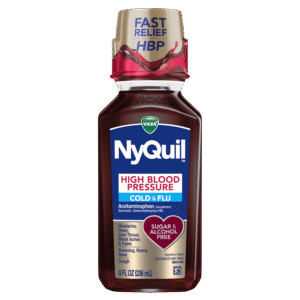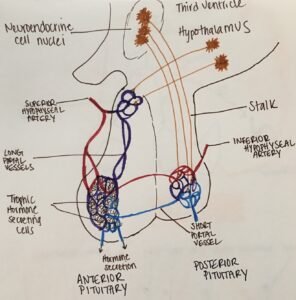Personality Changes That Can Be Caused by a Stroke
Understanding Personality Changes After a Stroke
Following a stroke, individuals may experience profound changes in their personality alongside physical impairments. These behavioral changes can cause confusion for the person affected and their loved ones, especially if they no longer feel like themselves.
The Nature of Personality Changes Post-Stroke
Personality changes after a stroke are relatively common and often explain why a stroke survivor may behave differently than before. Recognizing these changes is a key step in regaining a sense of normalcy. With time and support, it’s possible to work towards regaining some of the traits that made a person feel more like themselves. This article explores common personality shifts following a stroke, their causes, and effective ways to manage them.
Post-Stroke Depression: A Common Personality Change
Depression is a frequent personality change that can occur after a stroke, with nearly one-third of survivors experiencing post-stroke depression.
Causes of Post-Stroke Depression
Post-stroke depression can be triggered by various factors:
-
Physical Limitations: Strokes often cause weakness, vision loss, or coordination issues that may lead to feelings of powerlessness or disability.
-
Health Concerns: After a stroke, individuals may worry about their health or even face anxiety about their own mortality, which can foster feelings of helplessness and despair.
-
Emotional Changes: Strokes can damage areas of the brain that control emotions, altering chemical balance and contributing to depression.
-
Delays in Seeking Treatment: Many survivors hesitate to seek help due to concerns about judgment or doubts about the effectiveness of treatment.
Managing Post-Stroke Depression
If you or a loved one is dealing with persistent feelings of sadness or hopelessness, it’s important to seek professional help. Depression after a stroke is treatable through a combination of antidepressants and counseling. Understanding that depression is not a personal failing or a sign of weakness can help individuals take the necessary steps towards recovery.
Social Anxiety and Avoidance After a Stroke
It’s common for stroke survivors to experience social anxiety. According to a 2018 study, around 20% of stroke and TIA (transient ischemic attack) survivors developed an anxiety disorder, often leading to social avoidance.
Why Social Avoidance Happens Post-Stroke
Stroke-induced brain changes can make social interactions challenging. Health issues, including severe disabilities, may prevent someone from leaving home, participating in activities, or even getting out of bed. In such cases, survivors might feel the need to withdraw from social gatherings to avoid embarrassment or discomfort. This isolation can lead to loneliness, perpetuating a cycle that’s difficult to break without intervention.
Coping with Social Anxiety
If anxiety is making it hard to engage socially, consult with a healthcare professional. Treatment options may include medication or therapy to help manage anxiety. Techniques like relaxation exercises, cognitive-behavioral therapy (CBT), or gradual exposure to social situations can help reduce anxiety and improve social participation.
Cognitive Impairments: Challenges in Memory and Problem-Solving
Cognitive deficits such as memory problems, difficulty with language, problem-solving, and basic calculations are common following a stroke. Some survivors may forget names, misplace items, or struggle with tasks they previously found easy.
Causes of Cognitive Changes Post-Stroke
Cognitive changes are often due to damage in areas of the brain responsible for memory and cognition, such as the frontal, parietal, or temporal lobes.
Managing Cognitive Impairments
While restoring cognitive abilities can be challenging, it’s not impossible. Just as physical disabilities may improve with therapy, cognitive rehabilitation can sometimes help. Brain retraining techniques, whether through individual sessions or computer programs, show promise. It’s important to work with healthcare providers to determine the most effective approaches, including medication for related issues like sleep disturbances.
Tips for Managing Memory Loss
Here are some practical strategies to cope with memory loss:
-
Designate specific spots for frequently used items like keys and wallets.
-
Use memory aids, like associating a task with a song or rhyme.
-
Keep a written journal of important information, such as contacts and medication schedules.
-
Break down complex tasks into smaller, manageable steps.
Regular practice and positive reinforcement can significantly improve communication and memory over time.
Emotional Instability and Uncontrollable Expressions
Many stroke survivors experience emotional instability, sometimes displaying extreme or inappropriate reactions like laughing or crying uncontrollably. This condition is known as pseudobulbar affect.
Causes of Emotional Instability
Emotional changes are often linked to disruptions in the brain’s pathways that regulate emotional responses. Strokes affecting certain parts of the brain can interfere with these neural processes, resulting in difficulty managing emotions.
Managing Emotional Instability
Treatment options include antidepressants and Nuedexta, the first FDA-approved medication for pseudobulbar affect. Additionally, cognitive therapy and social support can be invaluable in helping stroke survivors manage their emotional responses.
Tips for Coping with Emotional Outbursts
-
Practice slow, deep breathing to regain composure.
-
Relax your facial muscles to control emotional expressions.
-
Shift focus to an activity or conversation to redirect emotional energy.
Apathy After a Stroke: Lack of Motivation
Apathy, or a lack of motivation, is another common issue post-stroke. Survivors may lose interest in activities they once enjoyed, or stop engaging with family and friends. This can significantly impact quality of life.
Causes of Apathy
Several factors can contribute to post-stroke apathy:
-
Cognitive Decline: Difficulty processing tasks or making decisions can make tasks seem overwhelming.
-
Depression: Apathy may also stem from underlying depression.
-
Brain Changes: The stroke may have altered brain areas responsible for motivation and initiative.
Managing Apathy
Doctors may prescribe antidepressants or other medications to address apathy. Treatment may also include therapies focused on increasing engagement in daily activities, as well as techniques to enhance overall motivation.
💡 Frequently Asked Questions
Do Such Temperament Alterations Move Absent?
Answer coming soon. We are working on detailed responses to this common question.
⭐ Expert Tips
- Include seasonal or trendy variations to keep your meals exciting.
- Highlight prep shortcuts or time-saving techniques for busy cooks.
- Consider dietary restrictions and include substitution suggestions.
✅ Key Takeaways
- These dinner ideas are perfect for impressing guests or enjoying special occasions.
- Choose recipes that match your skill level and available kitchen tools.
- Presentation and taste both contribute to a memorable dining experience.
📣 Join Our Community
Want more inspiration like this? Subscribe to our newsletter for weekly dinner ideas and cooking tips!





